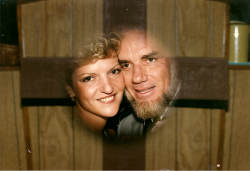Introduction
Thoughts for Today:Some biblical scholars have proposed Paul was preparing to close his letter to the Corinthians at the end of the preceding Chapter (nine). As you will soon see, the subject matter does make a pretty dramatic change from Paul's instructions related to giving, to now a much heavier topic, his apostolic authority. This also would explain the "missing" letter (a letter referred to by Paul, yet not available to us in any of the historical records of the Church).
As a result, some have suggested these two sections were originally separate letters which were later combined. Perhaps, but I also think the change in tone can be explained in another way. As you will remember, the Corinthian Church was a fractured church. Paul referenced their condition in 1 Corinthians 1:11-13: "I appeal to you, brothers and sisters, in the name of our Lord Jesus Christ, that all of you agree with one another in what you say and that there be no divisions among you, but that you be perfectly united in mind and thought. My brothers and sisters, some from Chloe’s household have informed me that there are quarrels among you. What I mean is this: One of you says, 'I follow Paul'; another, 'I follow Apollos'; another, 'I follow Cephas'; still another, 'I follow Christ.'"
The subject of leadership had led to a number of divisions in the church which Paul thoroughly addressed in his first letter. As a result, the majority of believers had come to respect Paul's apostolic authority. However, there still remained a very vocal and disruptive minority -- they opposed Paul, questioned his credentials, and right to instruct and rebuke in general. Over the next three chapters, we will see a side of Paul we haven't observed before. Why? Because in this closing section, he finds it necessary to address this outspoken minority and actually defend his apostleship.
Questions to Ponder:Just because a person's voice is loud and committed to their opinion doesn't mean they are right. How much weight do you give to the most vocally aggressive people? Is their approach "Christ-like"? Is it uplifting and supportive, or disruptive and quarrelsome? How should differences of opinion be shared? Read on -- Paul will provide additional example and insight into how he deals with disruptive and difficult people.





 RSS Feed
RSS Feed
